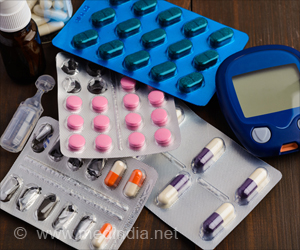Trials of a new compound called BG-12 have shown that it can reduce the number of new gadolinium enhancing (Gd+) lesions by 69 percent in patients with relapsing-remitting multiple
Patients with relapsing-remitting multiple sclerosis (MS) have new hope after trials of a new compound called BG-12 have shown that it can reduce the number of new gadolinium enhancing (Gd+) lesions by 69 percent in such patients.
The oral compound was also found to show a 53 percent reduction in the mean number of T1-hypointense lesions, and a 44 percent reduction in cumulative new Gd+ lesions in patients treated during the trial.While the presence of Gd+ lesions is thought to indicate continuing inflammatory activity within the central nervous system, T1-hypointense lesions are associated with significant breakdown and loss of brain tissue.
Biogen Idec, which announced the publication of Phase IIb data showing the effectiveness of the company's novel oral compound, said that an ad hoc analysis conducted during the study showed a decrease in the likelihood of Gd+ lesions evolving into T1-hypointense lesions (black holes), warranting further clinical study into the potential neuroprotective and anti-inflammatory effects of BG-12.
The company claims that BG-12 is the first compound that has been found to activate the Nrf2 transcriptional pathway that defends against oxidative-stress induced neuronal death, protects the blood-brain barrier, and supports maintenance of myelin integrity in the central nervous system.
"The effects of BG-12 on inflammatory brain lesions, together with the corresponding safety data, strongly support further research in Phase III clinical studies to define its place in the future of relapsing-remitting MS treatment. Because of BG-12's unique mechanism of action and its oral administration, it could be valuable as a therapy for many MS patients and not just those who prefer to not initiate injectable treatments," said the study's primary investigator, Professor Ludwig Kappos, acting Chair of Neurology and Research Group Leader, Department of Biomedicine, University Hospital Basel, Switzerland.
"While further study is necessary, enhancing the body's normal cellular protection pathways while reducing inflammation would be a unique approach to this disease. At Biogen Idec, we are continuing to invest and apply our expertise in MS with new research into novel compounds such as BG-12 to further improve the lives of people with this disease," said Michael Panzara, MD, MPH, Vice President, Chief Medical Officer of Neurology, Biogen Idec.
Advertisement
The researchers said that the most common adverse events that occurred more frequently in patients included flushing, headache, nausea, diarrhoea, upper abdominal pain, hot flush, and abdominal pain.
Source-ANI
RAS/S















